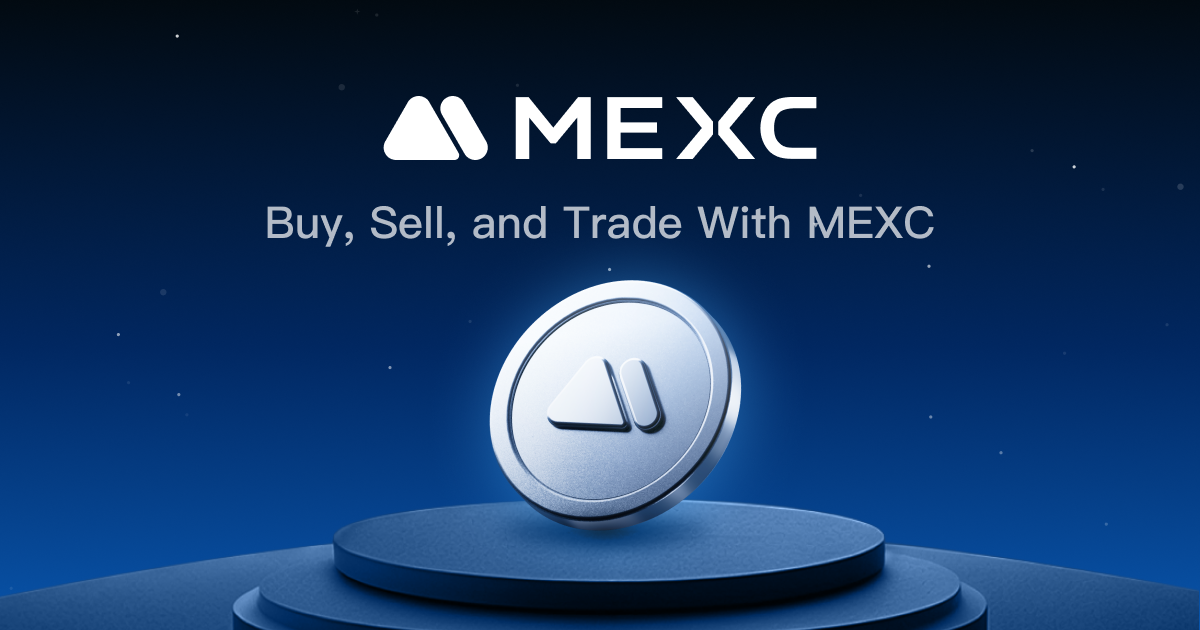
6 minute read
Is MEXC Legal in Switzerland? What You Need to Know
from MEXC
by Exness_India
If you're wondering, “Is MEXC legal in Switzerland?”, the straightforward answer is yes — with important caveats. MEXC, a popular global cryptocurrency exchange, operates in many countries, including Switzerland. However, understanding its legality involves navigating Swiss financial regulations, crypto licensing requirements, and compliance standards.
This article dives right into what makes MEXC legal or illegal in Switzerland, the current regulatory framework, how Swiss authorities treat crypto exchanges, and what users should know before trading on MEXC from Switzerland.

✅ Trade with MEXC now: Open An Account 👈
What is MEXC?
MEXC (formerly known as MXC Exchange) is a rapidly growing cryptocurrency exchange platform that offers a wide variety of digital assets for trading. It provides spot trading, futures, staking, and other financial products to users worldwide. Due to its global reach, many Swiss traders are interested in using MEXC, raising the question about its legal status under Swiss law.
Is MEXC Legal in Switzerland? The Quick Answer
Yes, MEXC is legally accessible in Switzerland, but it operates without a full Swiss license. This means Swiss residents can use the platform, but MEXC does not currently hold specific authorization from Swiss financial regulators like FINMA (Swiss Financial Market Supervisory Authority) to operate as a regulated financial institution.
In simpler terms, Swiss law does not explicitly prohibit MEXC from offering its services to Swiss residents. However, MEXC functions as a foreign exchange platform, and Swiss authorities have strict rules for companies operating within the country, especially those handling client funds or offering custody services.
Swiss Crypto Regulation Overview
Switzerland is known for its crypto-friendly regulatory environment, often called the “Crypto Nation.” It has developed a framework that balances innovation with investor protection. Here’s a quick look at how crypto exchanges are regulated:
FINMA Licensing: Any crypto exchange operating within Switzerland, especially those holding client assets, generally requires licensing from FINMA.
AML and KYC Rules: Anti-money laundering (AML) and know-your-customer (KYC) laws are strictly enforced.
Token Classification: Swiss law classifies tokens as payment tokens, utility tokens, or asset tokens, each with different regulatory treatment.
Why Does This Matter for MEXC?
MEXC is based offshore and has not applied for or received a FINMA license. This is typical for many international crypto platforms that serve Swiss customers remotely. They avoid the high costs and strict compliance requirements of Swiss licensing by operating outside Swiss jurisdiction.
For users, this means:
You can trade cryptocurrencies on MEXC from Switzerland.
Your funds are held according to MEXC’s terms but not protected under Swiss financial regulations.
MEXC must still comply with global AML and KYC standards, but Swiss authorities have limited direct control over its operations.

✅ Trade with MEXC now: Open An Account 👈
Risks of Using Unlicensed Exchanges in Switzerland
While MEXC is accessible, using a non-FINMA-licensed exchange entails risks:
Limited Legal Protection: Swiss investors don’t have the same protections as they would with a licensed Swiss bank or exchange.
Potential Regulatory Changes: Swiss law is evolving. Future regulations may tighten access to unlicensed foreign platforms.
Security Concerns: If the platform experiences hacks or insolvency, recourse is limited.
Tax Compliance: Swiss users must still declare crypto earnings for tax purposes, but unregulated exchanges may not assist in providing necessary documentation.
How Does FINMA Treat Exchanges Like MEXC?
FINMA focuses on protecting Swiss investors and ensuring financial stability. Their guidelines indicate:
Crypto exchanges servicing Swiss clients should register and comply with AML regulations.
Exchanges offering custody or managing client assets must seek full licensing.
Foreign platforms targeting Swiss users but without a Swiss presence can operate, but risk regulatory action if engaging in unauthorized activities.
MEXC’s lack of Swiss registration means it avoids many local regulatory requirements but also stays under scrutiny to avoid being blocked or sanctioned.
Is MEXC Registered in Other Jurisdictions?
MEXC holds licenses or registrations in some regions, particularly in Asia, where it has a significant user base. However, its regulatory status varies widely across countries. This patchwork approach means MEXC emphasizes compliance where required but generally operates as an offshore exchange elsewhere.
This highlights the importance for Swiss users to understand the platform’s status: It is not a Swiss-licensed entity, but it is a legitimate global platform accepted by millions worldwide.
What Should Swiss Users Know Before Trading on MEXC?
KYC Requirements: MEXC requires identity verification, in line with global AML standards.
Deposit and Withdrawal Limits: Check MEXC’s limits as they vary for verified and unverified accounts.
Fees and Trading Pairs: MEXC offers competitive fees and a wide range of crypto pairs.
Customer Support: Being a foreign platform, customer support response times and quality may vary.
Tax Obligations: Swiss users must report earnings from crypto trades on their tax returns, even if using a foreign exchange like MEXC.
Security Practices: Always use two-factor authentication (2FA) and consider only holding funds on exchanges temporarily.
Alternative Swiss-Licensed Crypto Exchanges
If you want the reassurance of dealing with a FINMA-regulated platform, consider Swiss-licensed exchanges such as:
Bitcoin Suisse: A pioneer in Swiss crypto brokerage and custody.
Lykke: A regulated Swiss-based exchange with a transparent compliance approach.
SEBA Bank: A fully licensed bank offering crypto services.
These platforms offer stronger investor protections but might have higher fees or less diverse asset offerings compared to MEXC.
The Future of Crypto Regulation in Switzerland
Switzerland continues to lead in balancing innovation and regulation. Recent developments include:
Discussions on expanding FINMA’s regulatory reach to foreign crypto providers targeting Swiss residents.
Increasing emphasis on AML compliance and investor protection.
Potential new rules requiring platforms like MEXC to obtain local licenses or restrict access.
Swiss traders should monitor these changes, as MEXC’s legal accessibility may be impacted.
Conclusion: Is MEXC Legal in Switzerland?
In summary:
MEXC is not explicitly illegal in Switzerland.
It does not hold a Swiss license but allows Swiss residents to trade.
Users should be aware of risks related to limited regulatory protections.
Compliance with tax laws and personal security measures is crucial.
Swiss-licensed alternatives offer higher safety but may lack MEXC’s breadth.
If you are a Swiss resident, you can use MEXC today, but it’s wise to stay informed about evolving laws and consider your risk tolerance. Always prioritize security, transparency, and regulatory compliance when choosing where to trade cryptocurrencies.
✅ Trade with MEXC now: Open An Account 👈
Read more:








